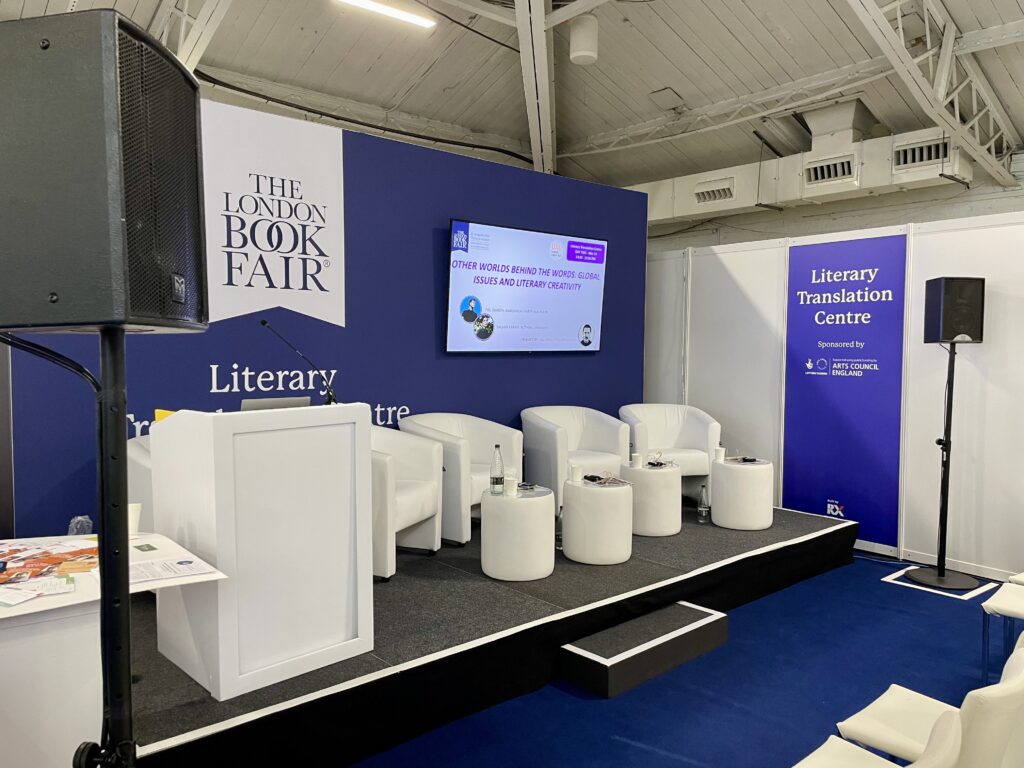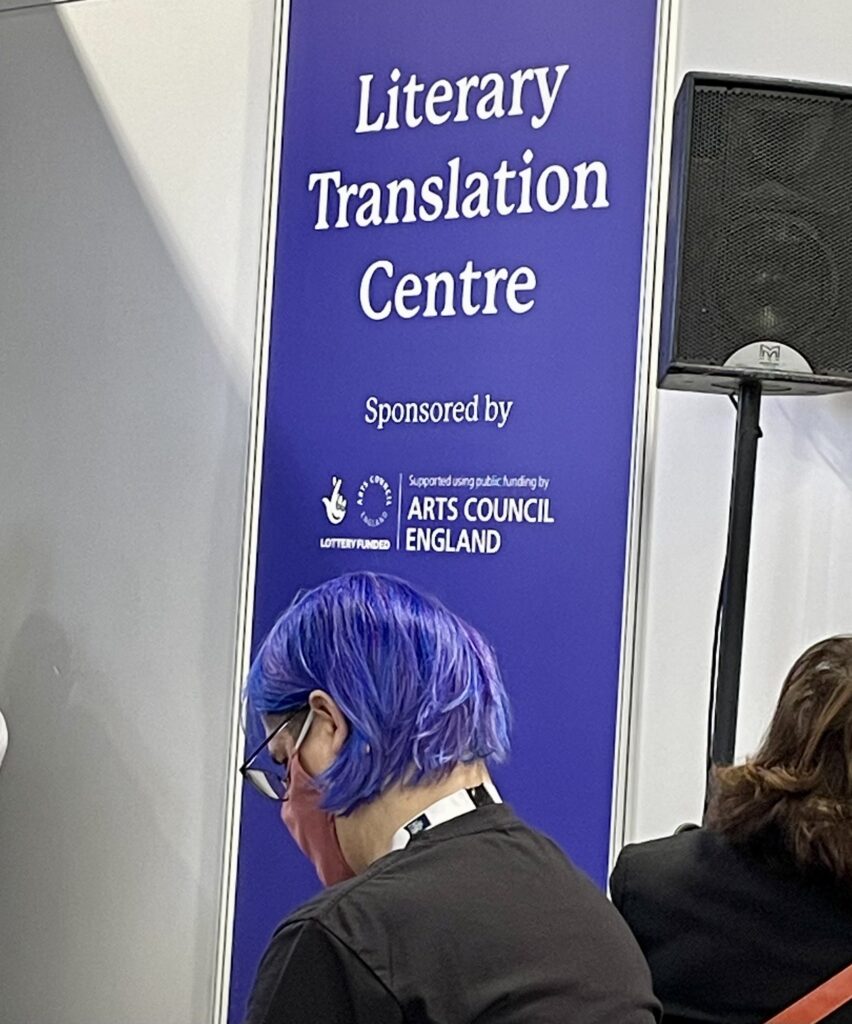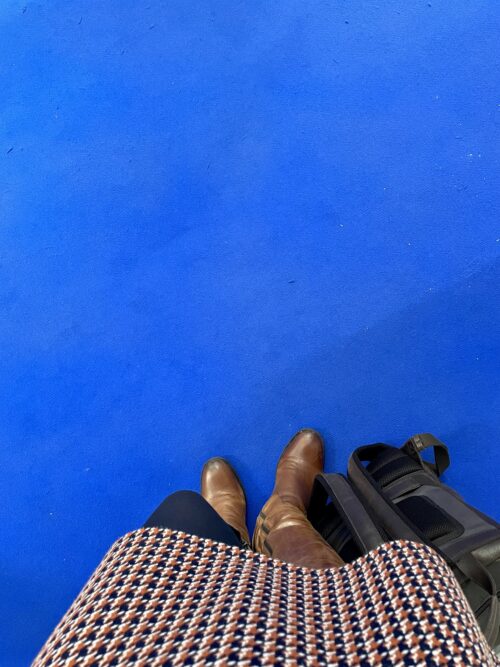
The last London Book Fair I attended was in 2019. In 2020 I was all set to fly over and take on the role of “translator of the fair”, with a poster-sized photo of me up outside the Olympia venue and events lined up – when the fair was rightly cancelled. There wasn’t an in-person version in 2021, in 2022 I got Covid just before leaving, and in 2023 I was too stressed and hunkered down in Dublin instead.
As you can imagine, this year I was absolutely delighted to see what felt like hundreds of people – mainly translators – who I hadn’t seen in the flesh for five years. But before that came the Assembly of Literary Translators, held near Elephant and Castle. Previous years have seen pre-book fair events for translators organised and funded by institutions. It seems that wasn’t possible this year, but Scandinavian-English translator Ian Giles stepped into the fray and did it himself. The down side: without outside funding it was more expensive than usual, which put a few people off. Other than that, though, it was a great start to the week.
Take several dozen literary translators of all ages, some established, some not yet. Put them in a nice room and give them panel discussions and a chance to chat, followed by crisps and little cans of wine. What do you get? A kind, supportive atmosphere that reminded me why I love the literary translation community. Panels were on the advantages of mentoring for both mentors and mentees, how to actually make a living, what editors want – and the one that got everyone talking: neurodiversity. Am I? Are you? The topic really echoed across the next few days. Well programmed!


And on to the main event. Olympia is under construction, making the place more of a beehive than ever. Hard hats mingled with business suits on the pavements outside, and inside was buzzing too. So many thousands in such a small space. For German book people: the London Book Fair is positively dinky compared to Frankfurt, only two halls on two floors, and like many things in the UK, if you scratch the surface it looks like it’ll fall apart any minute. There’s a choice of too hot with green nylon carpet (tech), too hot with blue nylon carpet (publishers), or the air-conditioned relative calm of the children’s book section, where unfortunately the nylon carpet was hot pink. I’m told they held horse shows at Olympia until a couple of years ago, hence the disposable carpet, but publishing types are fond of the old place.


Can you guess what makes up for it? The people! Obviously, the Literary Translation Centre is the best bit of the fair, since it’s filled with and surrounded by the worker bees of the book hive, busily cross-pollinating world literature. Is this metaphor still working? Who cares! There were panel discussions, all of them packed out and most of them interesting. There were free drinks, which I missed. And most of all there were conversations. I wasn’t the only person whose strategy between appointments was to stand around by the LTC and wait for someone I know to join me for a chat. Quality aimless catch-ups were had, new people were met, hugs and views and book tips were exchanged. And one thing I noticed: British publishing people are not afraid to wear bright colours. I’d actually bought a natty suit for my star turn in 2020, which didn’t get a lot of wear that year, so I was pleased to be able to put it on at last.

Aside from friendship, the other recurring topic was solidarity with the writers and civilians of Gaza. On almost every panel I attended, one person made a statement reminding us of the ongoing war and its casualties before the discussion began, usually to applause. English PEN addressed the subject at two events: Palestine, Israel, and Freedom of Expression in the UK, and Writing against Violence: Palestinian Literary Voices. There was a vigil outside by Book Workers for a Free Palestine on day one, though I didn’t notice it at the time. At Frankfurt last October, we were still reeling from the horrific Hamas attacks and hostage-takings eleven days previously, with hastily organised events in solidarity with Israel, but also protests against the Palestinian writer Adania Shibli’s disinvitation. At London, Palestinian writers were present and on our minds. In an industry that thrives on empathy, we obviously feel world events keenly. I hope we can extend compassion inclusively, to all those suffering in and as a result of this conflict.